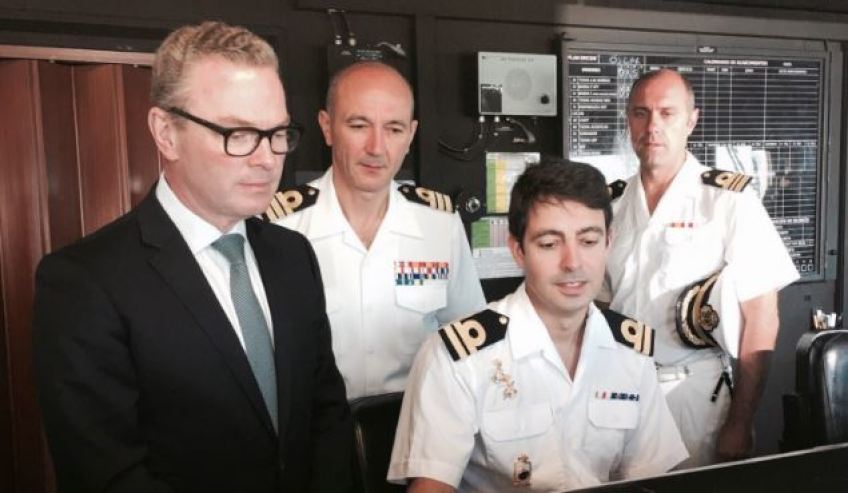Minister for Defence Industry Christopher Pyne has thrown his support behind new South Australian Premier Steven Marshall, saying his appointment will be a boon for local defence organisations and support the state’s ability to attract defence work.
To continue reading the rest of this article, please log in.
Create free account to get unlimited news articles and more!
South Australia is considered a key market for defence industry and capability building for the ADF, and is the home of the nation’s shipbuilding regime – including upcoming major naval initiatives the SEA 1000 Future Submarine and SEA 5000 Future Frigate programs.
With 16 years of a Labor government at the helm, and most recently under the leadership of labor leader Jay Weatherill who had been premier since 2011, South Australia has undergone a transformation to ensure it attracts key defence programs.
The state is well equipped to play a critical role in the decades ahead to support defence acquisition and sustainment.
A transition in government has raised some uncertainly within defence industry about a potential change of direction in South Australia’s involvement in the defence supply chain, sentiments that have been quashed by Minister Pyne.
As well as serving as Premier, Marshall will also be accountable for the defence and space portfolio – underpinning the importance of the defence industry for South Australia.
“The new Premier is also the Minister for Defence Industry, so he clearly sees it as a very high priority, and that it has the potential to be quite transformative not only to our strategic industrial base, but also to the South Australian economy in particular,” Minister Pyne told Defence Connect.
Minister Pyne’s relationship with the previous State Minister for Defence Industry Martin Hamilton-Smith was fractured.
It’s well known that Pyne didn’t speak to his South Australian counterpart Hamilton-Smith for more than three years. The rift originated from a fall-out after Hamilton-Smith, a former Liberal leader in the state, defected to Weatherill’s State Cabinet in 2014.
Under the Marshall government, Minister Pyne sees the prospects for a more functional relationship to support the business of defence.
“South Australia is certainly the home of submarine building, maintenance and sustainment, and large platforms in shipbuilding,” Minister Pyne said.
“As everyone knows who follows Defence Connect, it has a large footprint for things like the Defence Science Technology Group, BAE Systems, of course, have a large presence there, and most of the significant primes like Saab and Lockheed Martin, Raytheon, Leidos, and so forth. [They all have] a significant defence base [in the state].
“I don't know who necessarily made the most of it in the past, but the fact that we now have a Premier who's also the Minister for Defence Industry, and [is] very engaged on developing the skills base in South Australia and Australia, and supporting small and medium enterprises, particularly in exports, means it'll be a focus of his government.”
Minister Pyne did acknowledge the outgoing government’s support of defence industry.
“I worked well with Jay Weatherill and Tom Koutsantonis, and South Australia was never disadvantaged at any point because they had a Labor government,” he said.
“Creating jobs, growing the economy, is something that transcends politics. Obviously, we have different views about how to do it. The emphasis on tax versus not tax and regulation versus deregulation [for instance], but we always wanted to do the best we could for our state and for all the rest of Australia when it comes to defence industry.”
Tune in to the latest Defence Connect Podcast, where Minister Pyne shares further insights on defence industry, the current defence agenda, how the SEA 5000 program may play out, plus what Australia needs to do to elevate itself as a defence exporter.

 Login
Login







